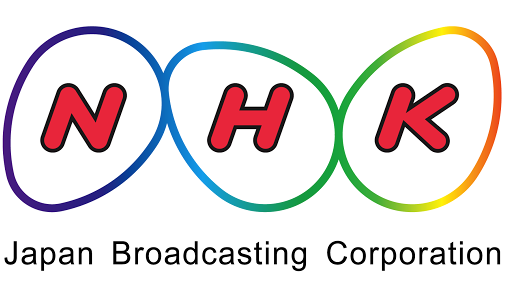Paying taxes works a little differently in Japan. Often, large companies will simply deduct the required income tax from employees’ paychecks, and even file the necessary paperwork for them. On the other hand, workers have their earnings taxed twice, with residency taxes which are based on their income from the previous year and must be paid quarterly. Like most things in Japan, resident taxes can be paid with a fat wad of cash at the convenience store.
But perhaps the weirdest of all are government fees for public television in Japan. Not only do the bill collectors go door to door soliciting payment, but some administrators are looking to make people pay the fees whether they own a TV or not.
Public television in Japan is administered by the broadcasting organization NHK. The quirkiness of NHK fees doesn’t stop with the legion of elderly bill collectors it dispatches to knock on citizens’ doors to collect annual fees, which are 13,600 yen (US$136), or 24,090 yen for owners of satellite TVs. Despite their widespread unpopularity, though, the law states no penalties for non-payment.
▼ Here’s the deal, NHK. We’ll pay your fees when you learn how acronyms work.
Japan, like most prosperous nations, has seen TV viewership steadily drop as people turn increasingly to the Internet for their news and information (thanks for that, by the way!). Many of the younger generation are finding they can make do without owning a television, and the easiest way to shoo away a fee collector for NHK (which stands for Nippon Hoso Kyokai) is by simply saying, “Sorry, I don’t have a TV,” as you give a half bow and gently close the door.
However, since the bill collectors lack the jurisdiction to barge into homes to verify this, even people who have multiple 40-inch TVs hanging on their walls often claim not to own a set.
▼ “What, that? It’s just some modern art. I’m really into minimalism. And monoliths. I am all about the monoliths these days.”
Nationwide, NHK’s says that only 73 percent of households pay the fees, with the lowest collection rates coming from urban centers such as Tokyo and Osaka, with a meager 60 percent.
NHK’s executive committee has floated a number of ideas on how to address this, including bringing legal action against households that have failed to pay. Recently leaked internal documents show another method the broadcaster is considering: petitioning to make payment of NHK fees mandatory even for households without a television set.
Although the proposed measure seems draconian at first, NHK isn’t entirely without justification. In recent years the organization has attempted to adapt to modern media trends by streaming more and more of its content on the Internet. NHK’s executive committee feels that differentiating between the fiscal responsibilities of those who watch its programs on a TV and those who watch on a PC would be both imprecise and impractical. Everyone equally sharing the burden, regardless of what sort of equipment they’re using, seems the fairest system to NHK.
Nevertheless, the plan isn’t sitting well with Internet commentators, with one angry individual asking NHK to at least give people the option of blocking the broadcaster’s signal before insisting that they pay for it.
At the moment, the idea of charging NHK fees to people without a TV is nothing more than that: an idea. NHK itself has declined to comment on the matter or the leaked internal document that brought it to the public’s attention.
In other words, it’s still a little early to go throwing your TV and laptop into Tokyo Bay as a form of protest. And even if it does come to that, please remember that nothing says “sticking it to the man” like donating them to the RocketNews24 offices.
▼ Besides, if the fish never sent America’s founding fathers a thank-you note for the tea, what are the odds they’ll appreciate your consumer electronics?
Sources: Jin, Yahoo! Japan News
Top image: Wikipedia
Insert images: NHK, Wikipedia



 Tokyo court rules that hotels must pay NHK fees according to the number of rooms with TVs
Tokyo court rules that hotels must pay NHK fees according to the number of rooms with TVs Japan’s public broadcaster wins landmark court case and 12 bucks
Japan’s public broadcaster wins landmark court case and 12 bucks Tokyo woman, only person to win court case against Japan’s public broadcaster, told to pay up
Tokyo woman, only person to win court case against Japan’s public broadcaster, told to pay up Japan’s public broadcaster goes thug-style, tags the house of man who refuses to pay fees
Japan’s public broadcaster goes thug-style, tags the house of man who refuses to pay fees “NHK Repelling Stickers” free for anyone wanting to keep away Japan’s public TV fee collectors
“NHK Repelling Stickers” free for anyone wanting to keep away Japan’s public TV fee collectors McDonald’s new Happy Meals offer up cute and practical Sanrio lifestyle goods
McDonald’s new Happy Meals offer up cute and practical Sanrio lifestyle goods Japan’s massive matcha parfait weighs 6 kilos, contains hidden surprises for anyone who eats it
Japan’s massive matcha parfait weighs 6 kilos, contains hidden surprises for anyone who eats it Beautiful Red and Blue Star luxury trains set to be Japan’s new Hokkaido travel stars
Beautiful Red and Blue Star luxury trains set to be Japan’s new Hokkaido travel stars Red light district sushi restaurant in Tokyo shows us just how wrong we were about it
Red light district sushi restaurant in Tokyo shows us just how wrong we were about it French Fries Bread in Tokyo’s Shibuya becomes a hit on social media
French Fries Bread in Tokyo’s Shibuya becomes a hit on social media Anime girl English teacher Ellen-sensei becomes VTuber/VVTUber and NFT
Anime girl English teacher Ellen-sensei becomes VTuber/VVTUber and NFT Sandwiches fit for a sumo served up in Osaka【Taste Test】
Sandwiches fit for a sumo served up in Osaka【Taste Test】 New private rooms on Tokaido Shinkansen change the way we travel from Tokyo to Kyoto
New private rooms on Tokaido Shinkansen change the way we travel from Tokyo to Kyoto Historical figures get manga makeovers from artists of Spy x Family, My Hero Academia and more
Historical figures get manga makeovers from artists of Spy x Family, My Hero Academia and more Limited-edition Carbonara Udon will anger noodle purists and pasta lovers 【Taste test】
Limited-edition Carbonara Udon will anger noodle purists and pasta lovers 【Taste test】 Japanese ramen restaurants under pressure from new yen banknotes
Japanese ramen restaurants under pressure from new yen banknotes All-you-can-drink Starbucks and amazing views part of Tokyo’s new 170 meter-high sky lounge
All-you-can-drink Starbucks and amazing views part of Tokyo’s new 170 meter-high sky lounge Studio Ghibli releases new action figures featuring Nausicaä of the Valley of the Wind characters
Studio Ghibli releases new action figures featuring Nausicaä of the Valley of the Wind characters Studio Ghibli glasses cases let anime characters keep an eye on your spectacles
Studio Ghibli glasses cases let anime characters keep an eye on your spectacles Tokyo Tsukiji fish market site to be redeveloped with 50,000-seat stadium, hotel, shopping center
Tokyo Tsukiji fish market site to be redeveloped with 50,000-seat stadium, hotel, shopping center Beautiful Ghibli sealing wax kits let you create accessories and elegant letter decorations【Pics】
Beautiful Ghibli sealing wax kits let you create accessories and elegant letter decorations【Pics】 Studio Ghibli releases Kiki’s Delivery Service chocolate cake pouches in Japan
Studio Ghibli releases Kiki’s Delivery Service chocolate cake pouches in Japan New definition of “Japanese whiskey” goes into effect to prevent fakes from fooling overseas buyers
New definition of “Japanese whiskey” goes into effect to prevent fakes from fooling overseas buyers Our Japanese reporter visits Costco in the U.S., finds super American and very Japanese things
Our Japanese reporter visits Costco in the U.S., finds super American and very Japanese things Studio Ghibli unveils Mother’s Day gift set that captures the love in My Neighbour Totoro
Studio Ghibli unveils Mother’s Day gift set that captures the love in My Neighbour Totoro New Japanese KitKat flavour stars Sanrio characters, including Hello Kitty
New Japanese KitKat flavour stars Sanrio characters, including Hello Kitty More foreign tourists than ever before in history visited Japan last month
More foreign tourists than ever before in history visited Japan last month New Pokémon cakes let you eat your way through Pikachu and all the Eevee evolutions
New Pokémon cakes let you eat your way through Pikachu and all the Eevee evolutions Sales of Japan’s most convenient train ticket/shopping payment cards suspended indefinitely
Sales of Japan’s most convenient train ticket/shopping payment cards suspended indefinitely Sold-out Studio Ghibli desktop humidifiers are back so Totoro can help you through the dry season
Sold-out Studio Ghibli desktop humidifiers are back so Totoro can help you through the dry season Japanese government to make first change to romanization spelling rules since the 1950s
Japanese government to make first change to romanization spelling rules since the 1950s Ghibli founders Toshio Suzuki and Hayao Miyazaki contribute to Japanese whisky Totoro label design
Ghibli founders Toshio Suzuki and Hayao Miyazaki contribute to Japanese whisky Totoro label design Doraemon found buried at sea as scene from 1993 anime becomes real life【Photos】
Doraemon found buried at sea as scene from 1993 anime becomes real life【Photos】 Tokyo’s most famous Starbucks is closed
Tokyo’s most famous Starbucks is closed One Piece characters’ nationalities revealed, but fans have mixed opinions
One Piece characters’ nationalities revealed, but fans have mixed opinions We asked a Uniqlo employee what four things we should buy and their suggestions didn’t disappoint
We asked a Uniqlo employee what four things we should buy and their suggestions didn’t disappoint Princesses, fruits, and blacksmiths: Study reveals the 30 most unusual family names in Japan
Princesses, fruits, and blacksmiths: Study reveals the 30 most unusual family names in Japan NHK can now pester you through your mail thanks to new service from Japan Post
NHK can now pester you through your mail thanks to new service from Japan Post NHK loses court case to Tokyo woman who can’t watch it because her TV has a blocker installed
NHK loses court case to Tokyo woman who can’t watch it because her TV has a blocker installed Man arrested for spraying Japan’s public broadcasting fee collector with fire extinguisher
Man arrested for spraying Japan’s public broadcasting fee collector with fire extinguisher Tokyo woman with signal blocked-TV loses appeal contesting her obligation to pay NHK fees
Tokyo woman with signal blocked-TV loses appeal contesting her obligation to pay NHK fees NHK bill collector arrested for kissing woman on the job: “I thought we were hitting it off!”
NHK bill collector arrested for kissing woman on the job: “I thought we were hitting it off!” “Protect the Nation from NHK Party” becomes “Protect the Nation from Old Parties Party”
“Protect the Nation from NHK Party” becomes “Protect the Nation from Old Parties Party” Anti-NHK activist recommends “magic words” that will drive away fee collectors instantly
Anti-NHK activist recommends “magic words” that will drive away fee collectors instantly Tokyo University and NHK on the verge of touch-o-vision: Television you can truly feel a part of
Tokyo University and NHK on the verge of touch-o-vision: Television you can truly feel a part of Leader of political party that refuses to pay NHK ordered to pay NHK
Leader of political party that refuses to pay NHK ordered to pay NHK NHK’s US election banner has netizens wondering if it’s the new Street Fighter
NHK’s US election banner has netizens wondering if it’s the new Street Fighter NHK slips touching hidden message into TV listings on March 11
NHK slips touching hidden message into TV listings on March 11 Japan’s year-end Kohaku song battle rumored to end soon
Japan’s year-end Kohaku song battle rumored to end soon Japanese TV broadcaster captions Donald Trump’s sumo speech in Tokyo as just “English”
Japanese TV broadcaster captions Donald Trump’s sumo speech in Tokyo as just “English” Japan’s pet kitties are reportedly spellbound by recent NHK wildlife documentary 【Photos】
Japan’s pet kitties are reportedly spellbound by recent NHK wildlife documentary 【Photos】 Poll shows most disabled people in Japan dislike “inspirational” documentaries about disability
Poll shows most disabled people in Japan dislike “inspirational” documentaries about disability
Leave a Reply